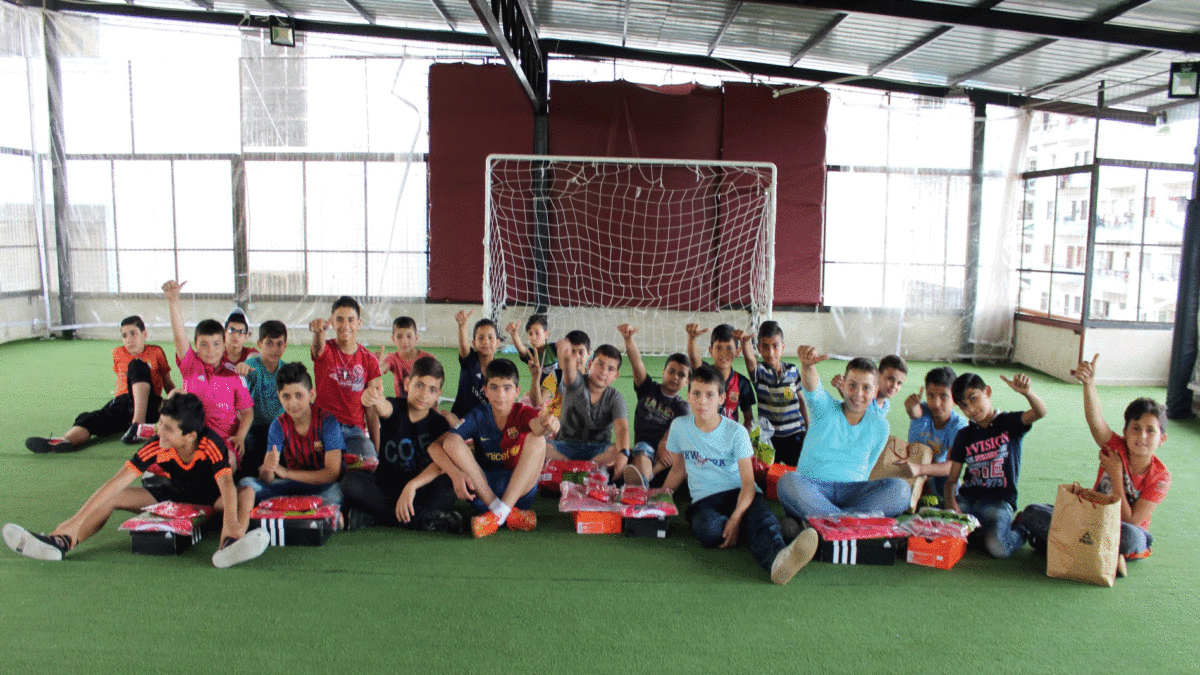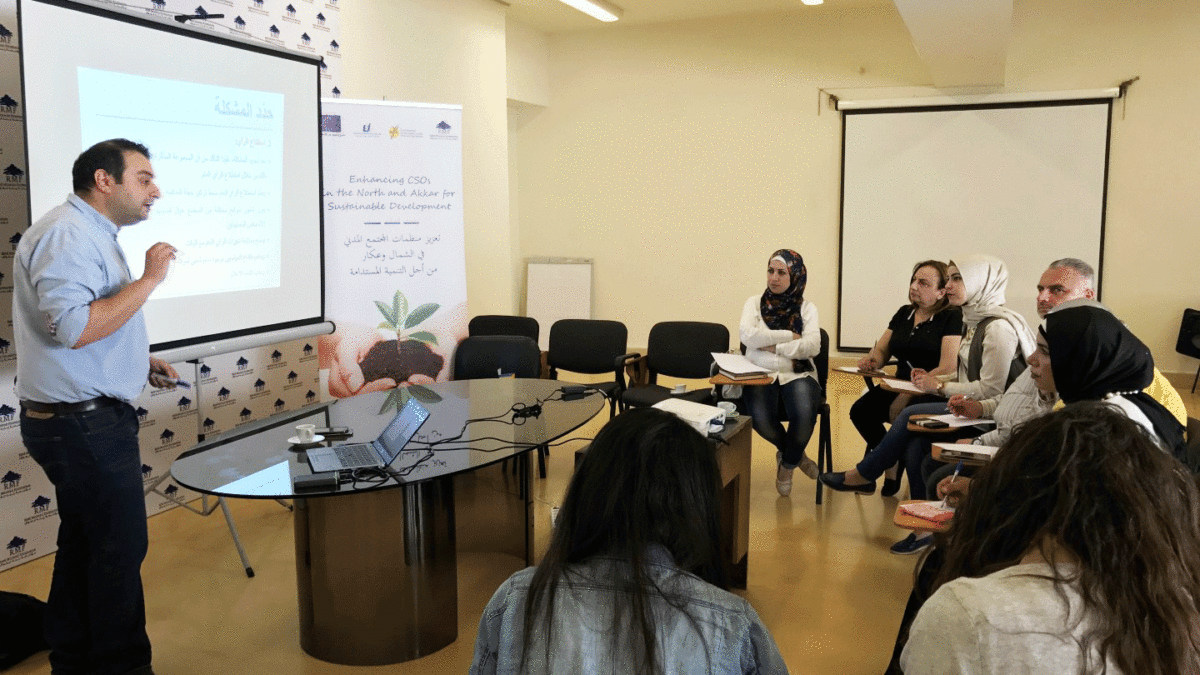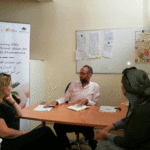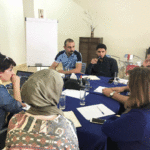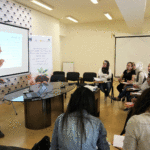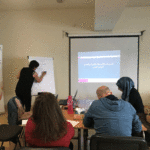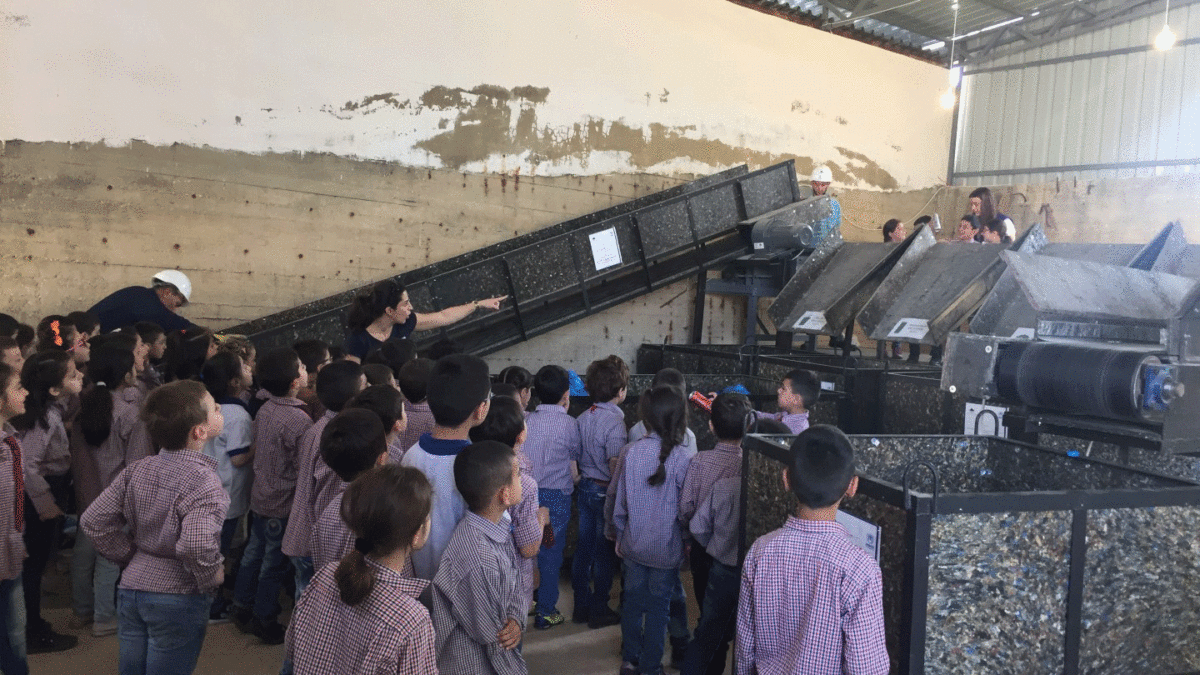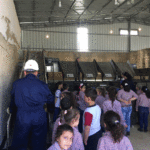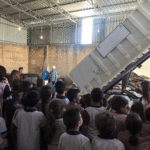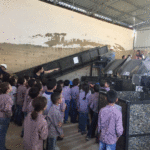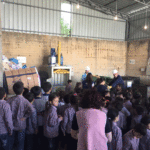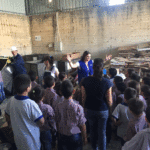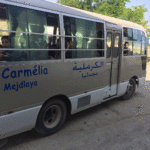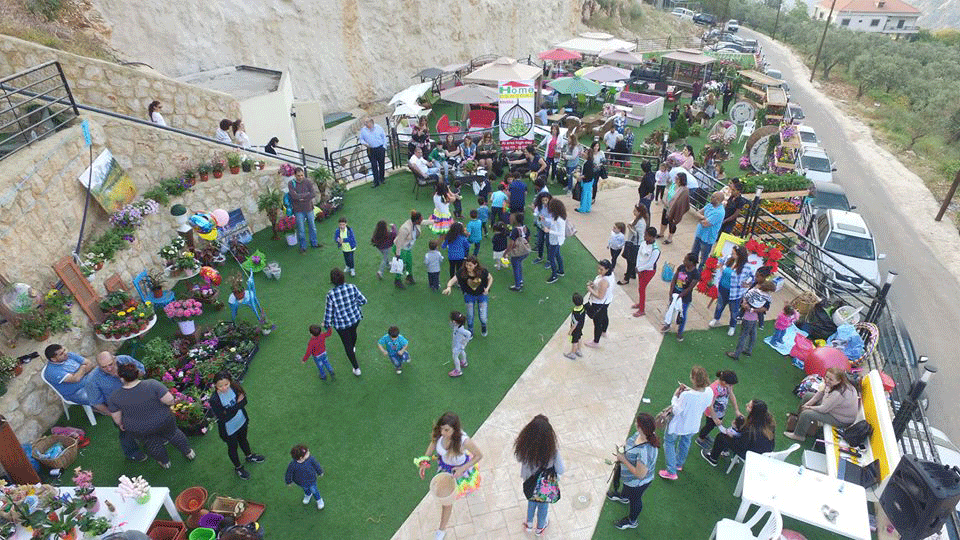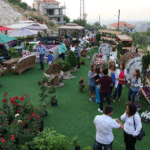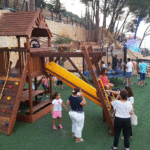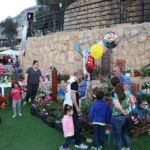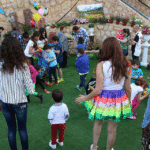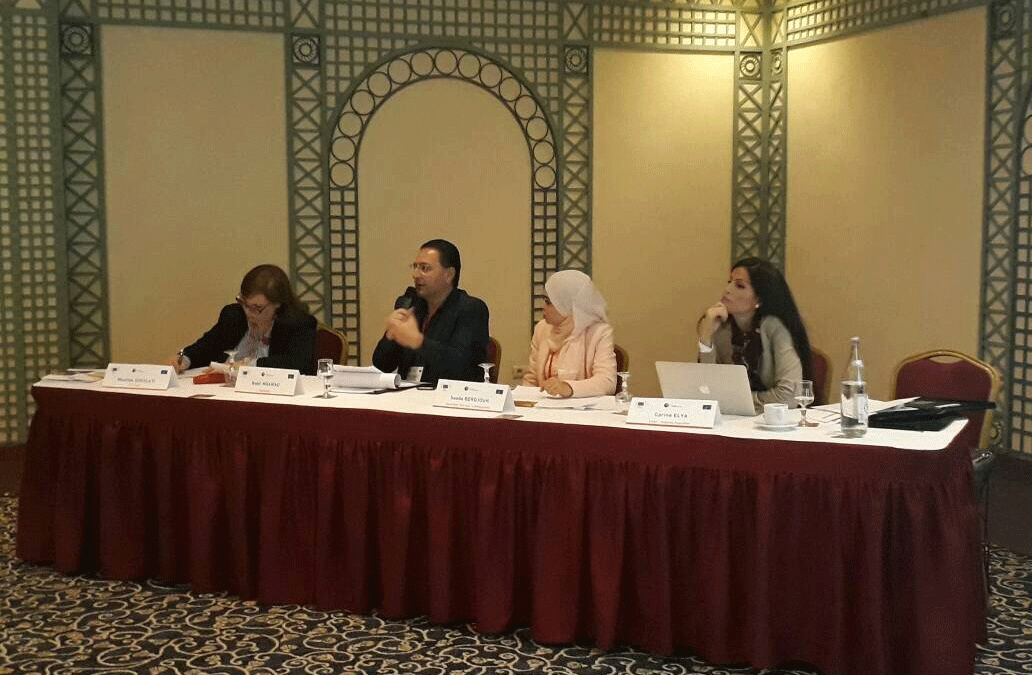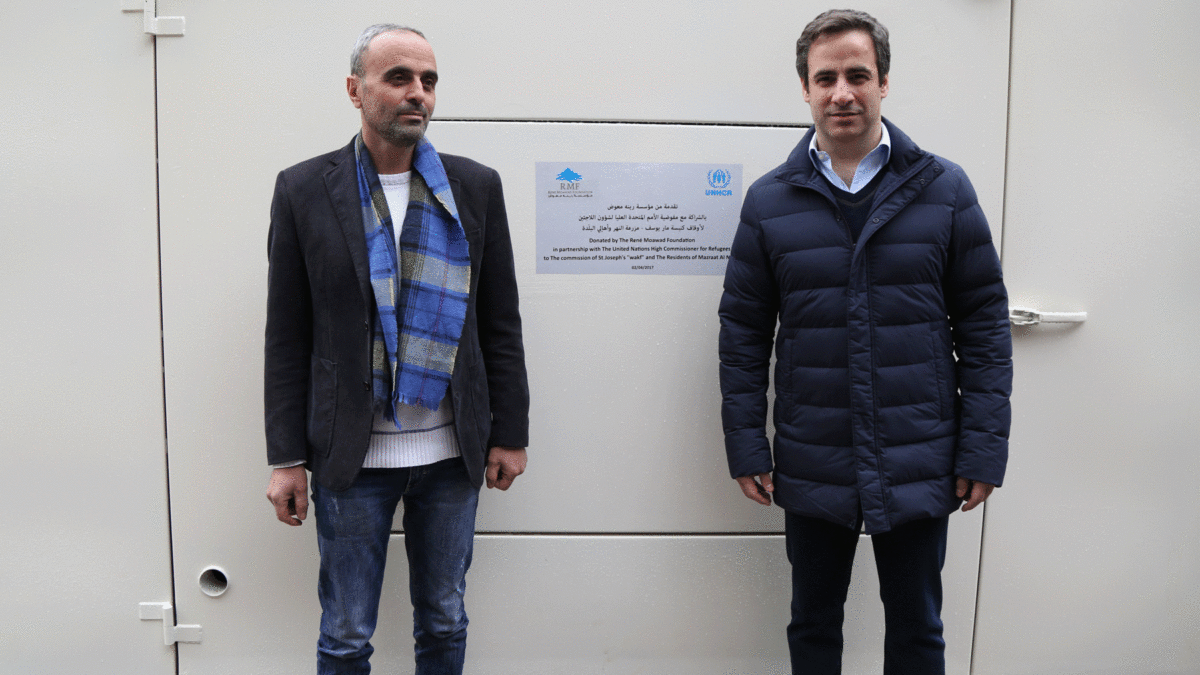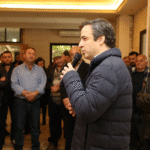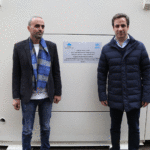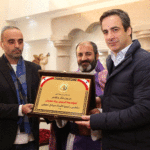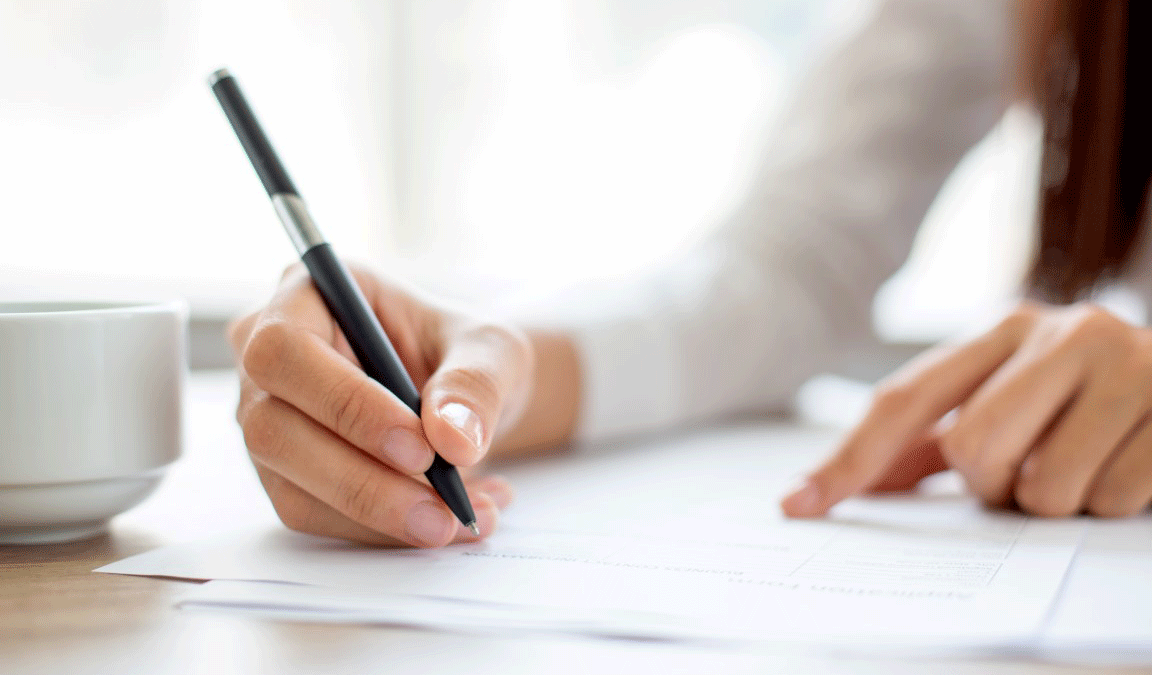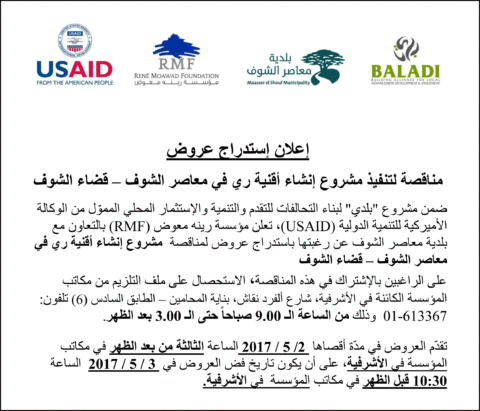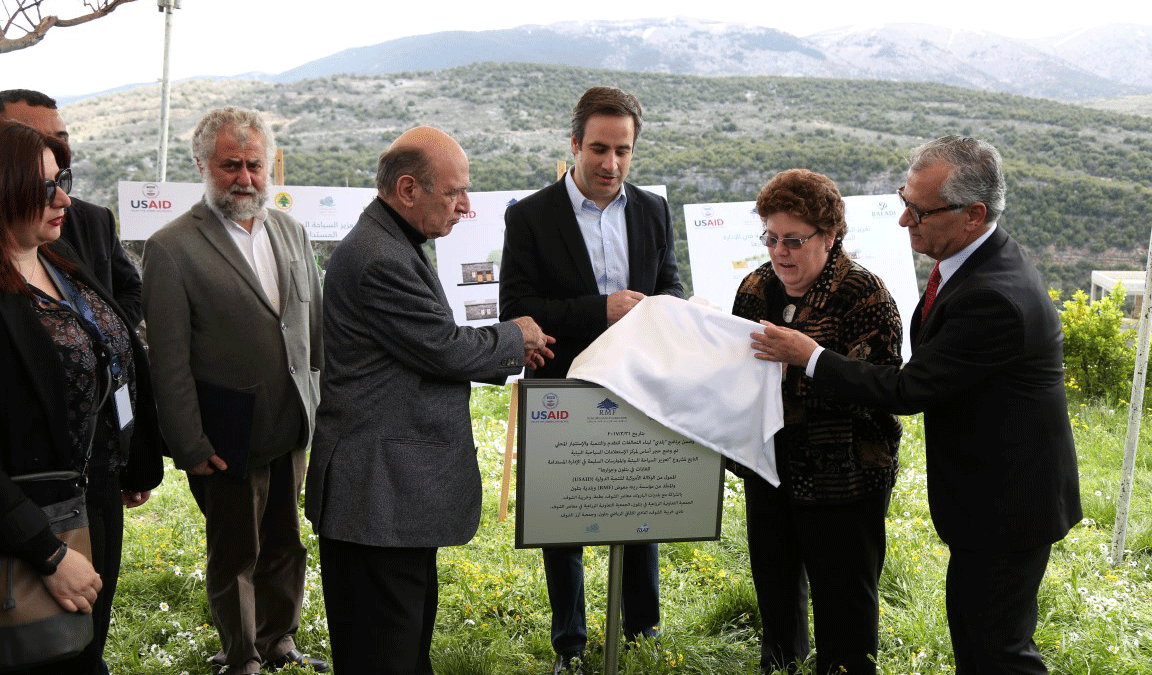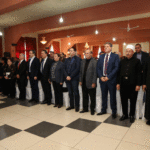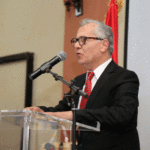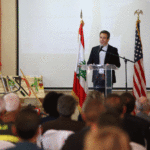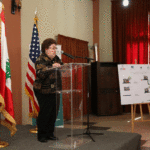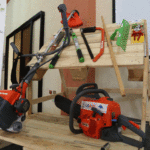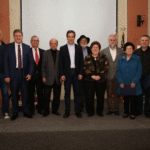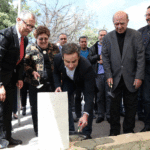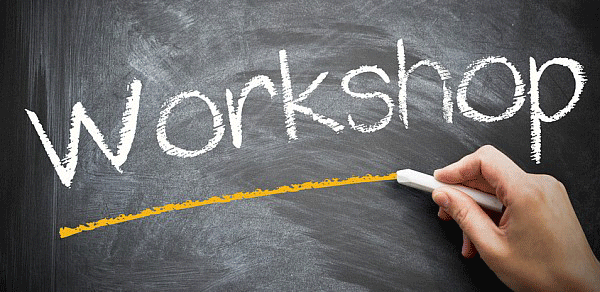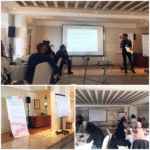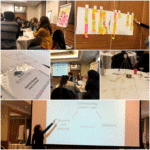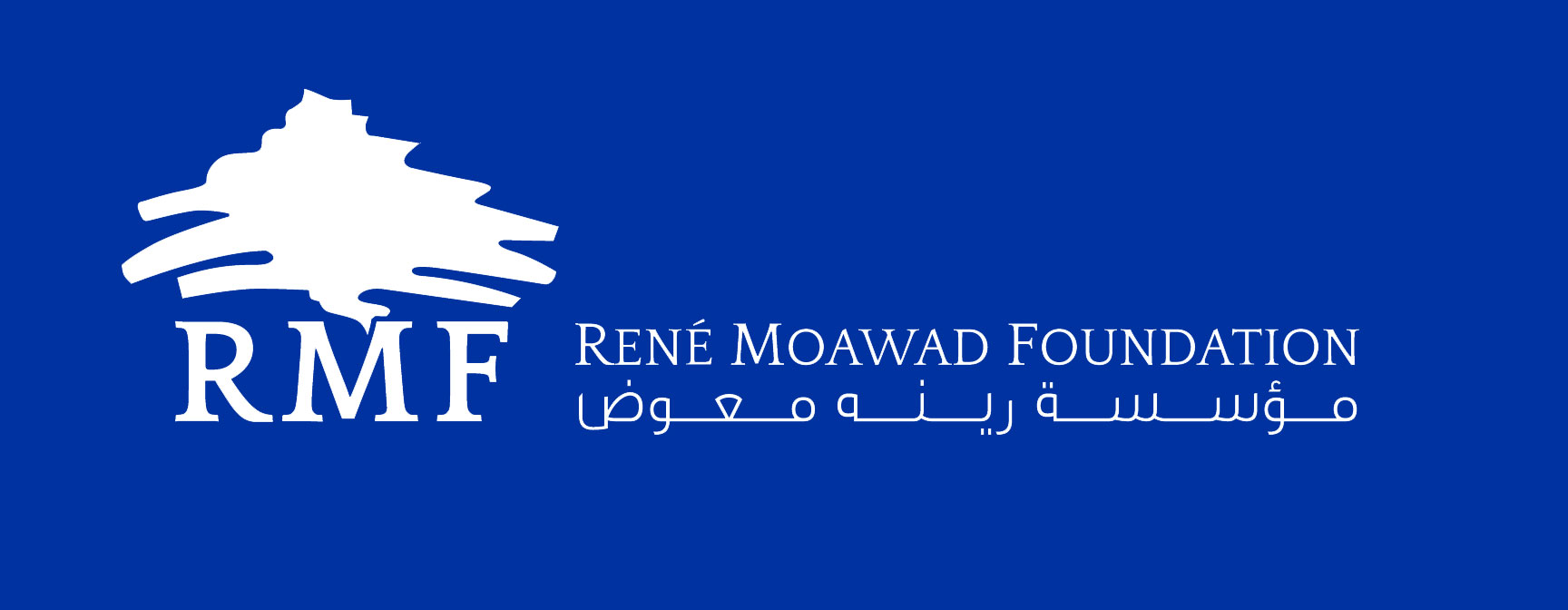Beirut March 31, 2017 – The Building Alliance for Local Advancement, Development, and Investment (BALADI) program, funded by the United Stated Agency for International Development (USAID) and implemented by René Moawad Foundation (RMF), celebrated the launch of field activities under the rural development project in Batloun. The project, developed by the municipality and community of Batloun and neighboring areas, will promote eco-tourism and help ensure sound, sustainable management of forests. A USAID grant of $175,000 will be used to establish a 20 kilometer hiking trail and a tourism information office, to provide training for tourism guides, for pruning and for wood briquetting equipment. The project will create jobs and generate income from tourism for 200 local residents and to transform pruned vegetation into heating logs. In addition, the project will help around 2,000 residents from Batloun and four surrounding villages (Botmeh, Barouk, Khreibet El Chouf, and Maaser El Chouf) benefit from the reduced costs for heating their homes by utilizing the briquet logs.
The launch ceremony, held at the premises of the Batloun Municipality, was attended by USAID Lebanon Mission Director Dr. Anne Patterson; RMF Executive Director Mr. Michel Moawad; the Mayor of Batloun Municipality Mr. Marwan Kais; representatives from Barouk, Maaser El Shouf, Botmeh, and Khreibeh El Shouf municipalities; representatives from the Agricultural Cooperative of Batloun and Maaser El Chouf; representatives from Al Shouf Cedar Society; and other community members. The event also marked the distribution of pruning tool kits to ten local entities participating in the activities, and concluded with the cornerstone placement of the project’s rural tourism information office.
The Mayor of Batloun
The event started with the national anthems of Lebanon and the USA, this was followed by welcoming words by the Senior Communication Officer at RMF-BALADI Lynda Khalifeh, and then a speech by the Mayor of Batloun Marwan Kais. Kais thanked all the parties who supported the project, and all those who are helping for its success. He said that the project will bring “an added value to eco-tourism, starting in Batloun and expending to the neighbouring villages and maybe reaching the whole of the Chouf as Batloun will be a destination for those who are interested in eco-tourism and those who seek a clean environment. This is one of our main goals and priorities in the strategic planning that we have put for the coming 6 years at the municipality.”
He noted that the project was the result of the getting together of “an international funds granting mission, the USAID, a national NGO that works on all the Lebanese territories, the Rene Moawad Foundation, and a local NGO, the Al Shouf Cedar Reserve. This, of course, with the cooperation of the municipalities of Barouk, Maaser El Shouf, Botmeh, Khreibet El Chouf and the Agriculture Cooperative of Maaser El Chouf and Batloun, along with the Khreibet El Chouf Club and the Batloun Cultural and Sports Club. This indeed is a joint and collaborative work which is par excellence an example to follow.”
Kais then enumerated the special touristic attributes of Batloun and the projects that are planned for future implementation by the municipality in the fields of Ecology, Health Care, Culture, Sports, Agriculture and the Social field, in order to make Batloun a model village with a clean environment attracting numbers of visitors. He noted that to execute all those ambitious projects, proper funds should be found, along with a continuous and long-term support. He hoped that “NGOs and associations would find in Batloun and its municipality the proper location to offer support and help.” He concluded by thanking again the USAID, RMF and the Al Shouf Cedar Reserve, and all other partners in this project.
Moawad
RMF’s Executive Director Michel Moawad then delivered a speech in which he said: “Here we are once again in the Chouf to launch a new project that is executed by RMF with the funding of USAID-Lebanon as part of the BALADI Program. Once again, we are being successful in an endeavor to face all what Lebanon is going through and all what the Lebanese are enduring these days. Once more, we are proving that real development requires first a will, second a decision, third a relatively modest funding most of the time, fourth transparency, and fifth the collaboration with local authorities and the cooperation amongst all the parties involved in the development activity.”
Moawad added: “Look at what is happening around us in Lebanon… News about corruption and squandering are the daily talk. The environment itself, just like the environmental economy, needs a waste landfill. On the other hand, look at the example of the Promoting Rural Tourism and Sustainable Forest Management in Batloun project: With the funding of $175,000 offered by USAID and the cooperation and participation of the Municipality of Batloun, the Al Shouf Cedar Reserve, along with the municipalities of Barouk, Maaser El Chouf, Botmeh, Khreibet El Chouf, the Agriculture Cooperative of Maaser El Chouf and Batloun, the Khreibet El Chouf Club and the Batloun Cultural and Sports Club, RMF was able to execute this project which will benefit 3,000 local residents, and will offer new job opportunities and generate more income through a range of activities that will reduce the chaotic cutting of trees for home heating. The activities will transform the remains of tree pruning into wood briquette logs for fire heating and will raise the awareness on the sustainable management of forests in Batloun and the neighbouring villages in the Chouf.”
He emphasized: “To summarize: Through just one project and with a very low budget compared to all the figures that we read about nowadays, we were able to hit several birds in just one stone. 3,000 local residents are benefiting, job opportunities are being created, strong efforts have been made to preserve the wonderful environment of the Chouf, at a time when the Environment is absent from the Lebanese’s State official agendas. We therefore managed through this project to link people’s interests with the local economy by protecting the environment, instead of cutting our trees and destroying our forests…”
He added: “This project has succeeded because it is the fruit of collaboration between three entities. First, USAID, who has funded it; this funding is of course from the American people. Second, the local authorities, meaning the municipalities and civil organizations, which know the needs of their region, and without whom it would be impossible for similar projects to succeed. Third, RMF, who executed the project and linked the local authorities with the granting party. This trio has proven, one more time, that when there is proper collaboration between its members, it is capable to realize true achievements in improving people’s lives.”
Moawad called again for the formation of a pressure group that works for the activation of the role of local authorities, and empowering them through the implementation of wide scale decentralization, because “the local authorities – municipalities and Civil Society Organizations (CSOs) – know more than anyone else the real needs of their regions, and can work with transparency being closer to the citizens that have elected them, and thus can be subject to accountability in a more efficient way.”
He also added: “I am honored that RMF has executed till this day 9 projects as part of the BALADI Program, and this covering all the regions of Lebanon: Enhancing the fishermen’s port in Jounieh, building a park for environmental and touristic activities in the Bentaal reserve (Jbeil), building a cold storage, sorting and packaging facility for apples and fruits in Ehmej (Jbeil), building a public garden and community hall for festivals and social and cultural activities in Kousba (Koura), creating a blood testing laboratory in Deir Aamar (Dunnieh), improving and rehabilitating the irrigation water conveyance network in Bazbina (Akkar), establishing and equipping a computer center in the public school of Hrar (Akkar), building a center of skill training and a space of games and children’s activities in addition to an outdoor area for festivals and exhibitions at the Abra municipality (Saida), and here in the Chouf, we have also worked on a project for promoting rural tourism in Barouk-Freydis.”
He also shared that RMF has executed all these projects “with pride so that the Lebanese citizen remains in his homeland. And we are now preparing for the execution of 22 new projects in the various parts of Lebanon, distributed as follows: 10 projects to promote rural tourism and the increase of income, 4 projects for power and electricity generation, lighting streets or heating water by using solar panels, 4 projects to rehabilitate and enhance water canals, 1 project to empower and support youth initiatives, 1 project to generate income through food processing, 1 project to establish a drinking water network, 1 project to rehabilitate a public school… Amongst these projects, the Chouf again will be gifted with two more projects: Creating an eco-touristic area in Bchatfeen, and building and equipping water irrigation canals in Maaser El Chouf. All these projects, which are part of the BALADI Program funded by USAID, will be benefiting more than 175,000 people in the various parts of Lebanon.”
Moawad concluded: “Therefore, please allow me to thanking first the American people and USAID for its continuous work to bring development to the various Lebanese regions and improve the living conditions of the Lebanese people. I would also like to thank the Batloun Municipality, the Al Shouf Cedar Reserve, and the municipalities of Barouk, Maaser El Shouf, Botmeh, Khreibet El Chouf, the Agriculture Cooperative of Maaser El Chouf and Batloun, the Khreibet El Chouf Club and the Batloun Cultural and Sports Club. And how could I forget the RMF team which proves project after project the extend of its professionalism. I thank you all for your presence with us. I hope that we meet again soon for the inauguration of new development projects.”
Patterson
USAID Lebanon Mission Director Dr. Anne Patterson then spoke and said: “I am pleased to be here today in this beautiful region of Chouf district to celebrate the placement of the foundation stone of a project that will improve livelihoods in this region, while also protecting the environment.”
She continued: “The United States has long advocated for empowering local communities and bringing them together to promote local economic development and address social challenges. This is why USAID has worked hand in hand with the Lebanese people for decades to create strong communities that enhance the wellbeing of people, from increasing employment and economic opportunities to improving water and sanitation services. We believe that a local community, given the right resources can transform the future of towns and districts as well as the whole country.”
She added: “Over the past 10 years, USAID has been proud to invest more than 77 Million dollars to support municipalities throughout Lebanon to improve local services and stimulate local economic growth.”
And she explained: “The BALADI Project currently supports around 200 municipalities, directly or through Municipal Unions, to engage citizens in decision making and in responding to priority needs in their communities, spanning a number of critical sectors such as water and sanitation, agriculture, eco-tourism. These activities will improve the lives of more than 100,000 people. Today, here in Batloun, the municipality, in cooperation with 4 other municipalities and 6 local NGOs, decided to embark on this initiative stemming from its belief in the importance of sustainable management of forests.”
She stated: “This project is a testimony of the power of partnership between municipalities and communities to face growing challenges and keep moving forward. With your resolve and dedication, I am confident that this project will not only bring about a transformational change in the Chouf, but will also be a building block for a more prosperous future for Lebanon.”
The BALADI Program Director at RMF Natasha Marashlian and the manager of the Al Shouf Cedar SocietyNizar Hani then presented a general technical overview on the Enhancing Rural Tourism in Barouk-Freydis project.
The event also marked the distribution of pruning tool kits certificates to ten local entities participating in the activities, and concluded with the cornerstone placement of the project’s rural tourism information office.
The five-year $26 million USAID BALADI project is currently implementing 54 activities which engage 137 municipalities for socio-economic development throughout Lebanon. These supported activities meet the needs of communities in several sectors including: electricity generation through solar power, irrigation, access to potable water, income generation through rural tourism, agro-processing, entrepreneurship, and skills training, equipment for public schools and community health clinics, and community social and sports centers.
